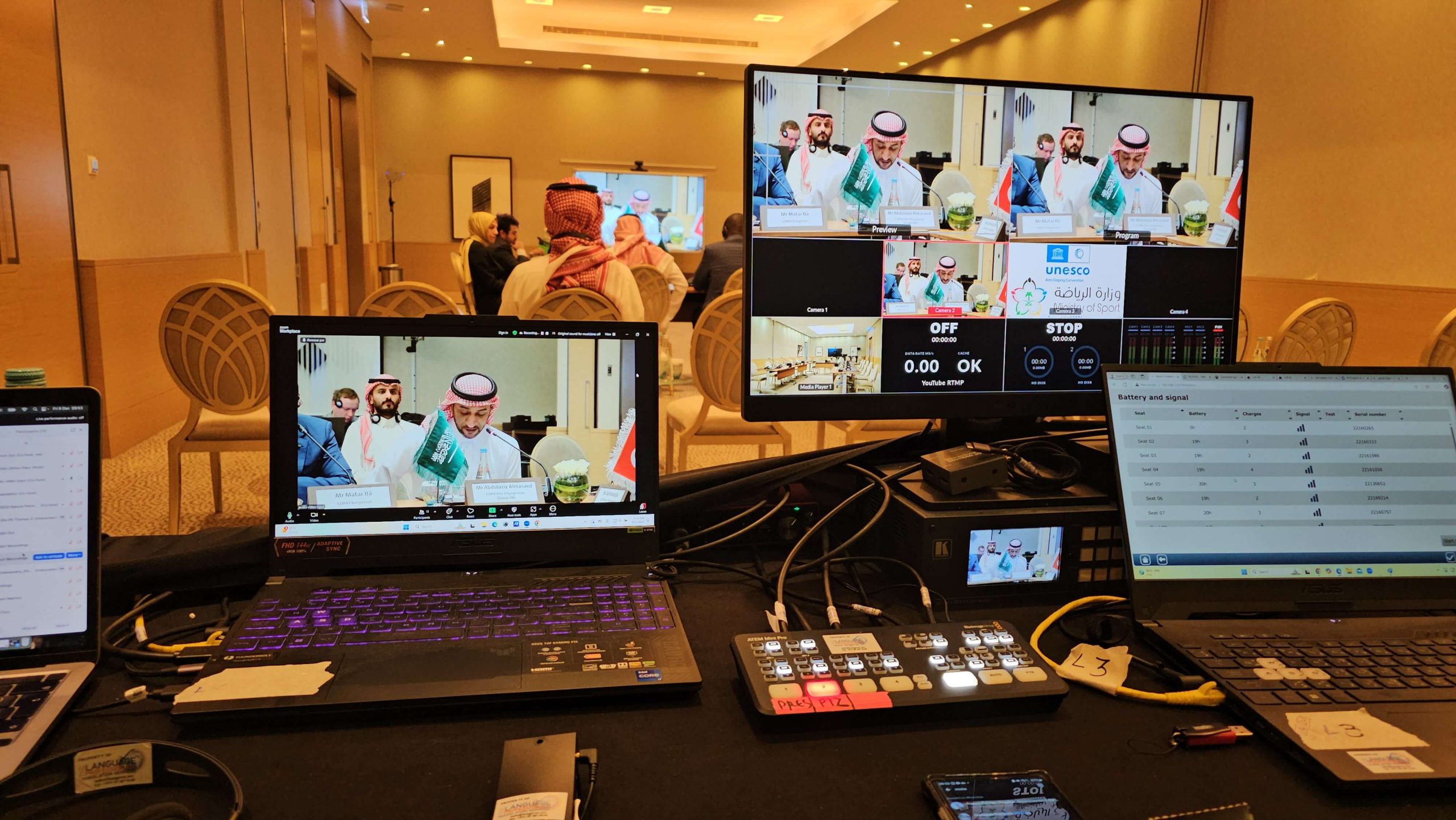
Keeping up with new interpreting trends is as important for event organizers, as it is for interpreters looking to provide excellent language services. As we dive deep into the industry, here are seven trends reshaping the world of conference interpreting in 2023 and beyond.
- Virtual Interpreting Takes Center Stage:
The arrival of virtual conferences has led to a surge in demand for remote interpretation services. Gone are the days of interpreters standing at the back of a crowded room; instead, they are now navigating complex conversations through screens. This change has made things more accessible, while also challenging interpreters to understand how to accurately convey meaning at a distance.
- Artificial Intelligence and Machine Translation Integration:
The integration of artificial intelligence (AI) and machine translation (MT) tools is transforming the landscape of conference interpreting. These technologies, while not replacing human interpreters, are serving as invaluable aids, streamlining the process and enhancing overall efficiency. Interpreters are now leveraging AI to access glossaries, terminology databases, and context-aware language suggestions, leveraging them to provide more accurate and contextually relevant interpretations.
- Hybrid Events and Multilingual Experiences:
As conferences adopt hybrid formats, interpreters are adapting to provide seamless language experiences for both in-person and virtual attendees. This trend highlights the importance of interpreters being proficient in both traditional simultaneous interpreting and managing hybrid events. Hybrid events often have different settings, making it crucial for interpreters to be skilled in managing these variations.
- Specialized Industry Knowledge:
Conference interpreters are increasingly becoming subject matter experts in specific industries. Whether it’s healthcare, technology, or finance, interpreters are expected to possess a deep understanding of the terminology and nuances unique to each sector. This trend emphasizes the importance of continuous learning and professional development for interpreters to stay relevant in their respective fields.
- Remote Simultaneous Interpreting (RSI) Platforms:
The rise of Remote Simultaneous Interpreting platforms has revolutionized how interpretation services are delivered. These platforms translate languages in real time for virtual and hybrid events. This makes it easier for event organizers to access a larger pool of specialized interpreters and greatly improves participant experience. The challenge now lies in selecting and mastering the right RSI tools to ensure smooth and reliable communication.
- Emphasis on Cultural Sensitivity:
With the global nature of conferences, interpreters are increasingly recognizing the importance of cultural sensitivity in their work. Understanding cultural nuances, idioms, and non-verbal communication has become paramount to delivering accurate and effective interpretations. This trend shows that cultural context affects communication and emphasizes the importance of interpreters as cultural ambassadors.
- Continuous Professional Development:
In a field that is constantly evolving, interpreters are placing a greater emphasis on continuous professional development. Staying updated on language trends, technology advancements, and industry-specific knowledge is no longer an option – it’s a necessity. Interpreters are attending workshops, webinars, and conferences to refine their skills and expand their knowledge base, ensuring they remain at the forefront of the industry.
Bottom Line
In summary, professional conference interpreting is changing due to technology, different event styles, and recognizing the significance of cultural context. Conference interpreters’ role is crucial in promoting effective communication between different cultures. This is especially true as we go through these changes: indeed, the importance of interpreters’ role has increased significantly over the last few years.
In this landscape, choosing an expert language service provider with a proven track record in delivering exceptional interpretation services has never been more important to ensure that neither language nor technological barriers become a roadblock to effective communication.





